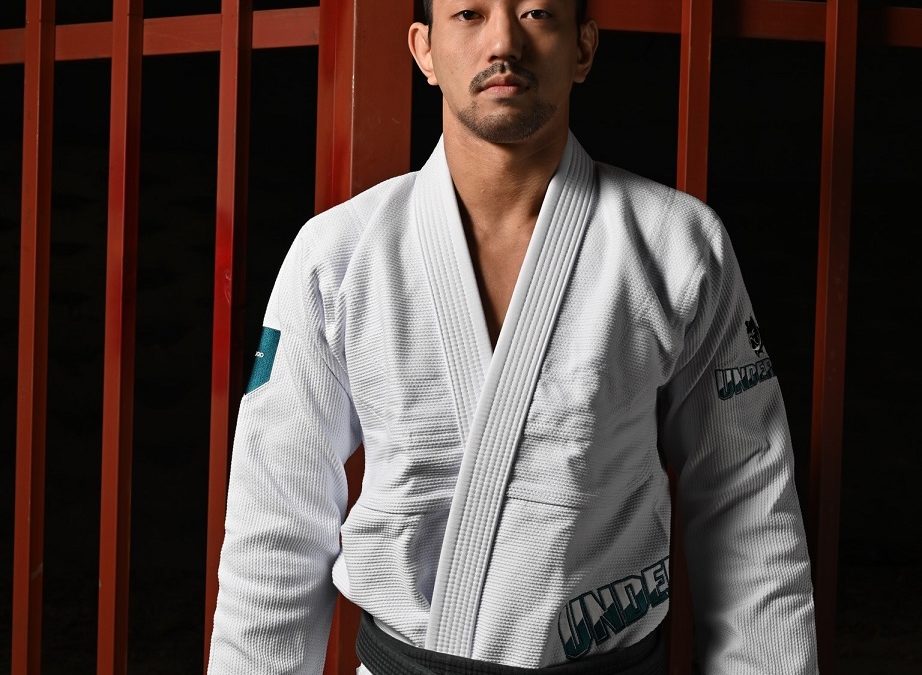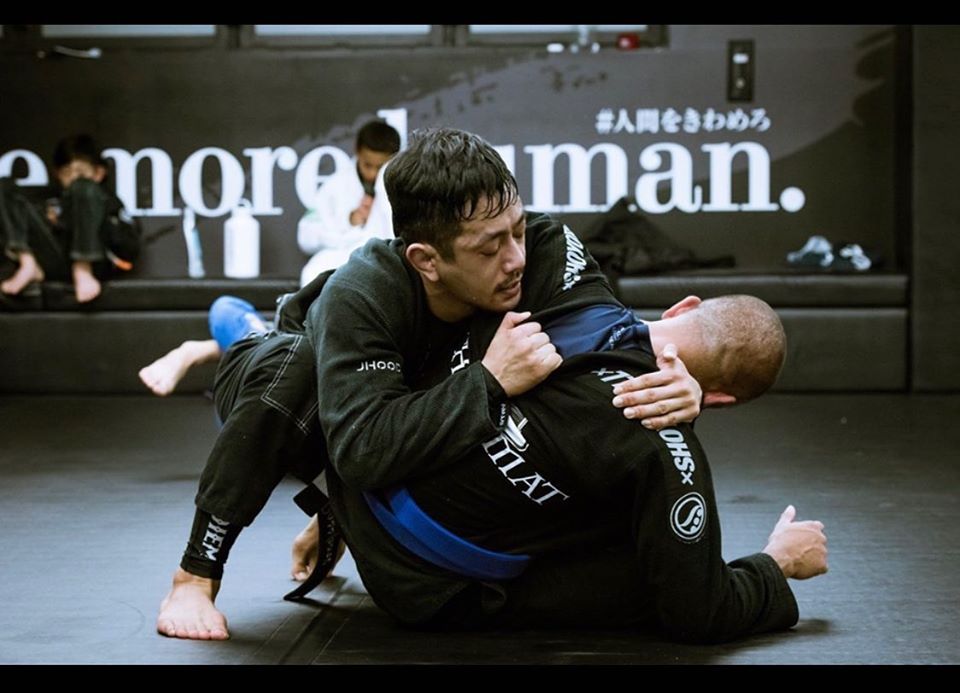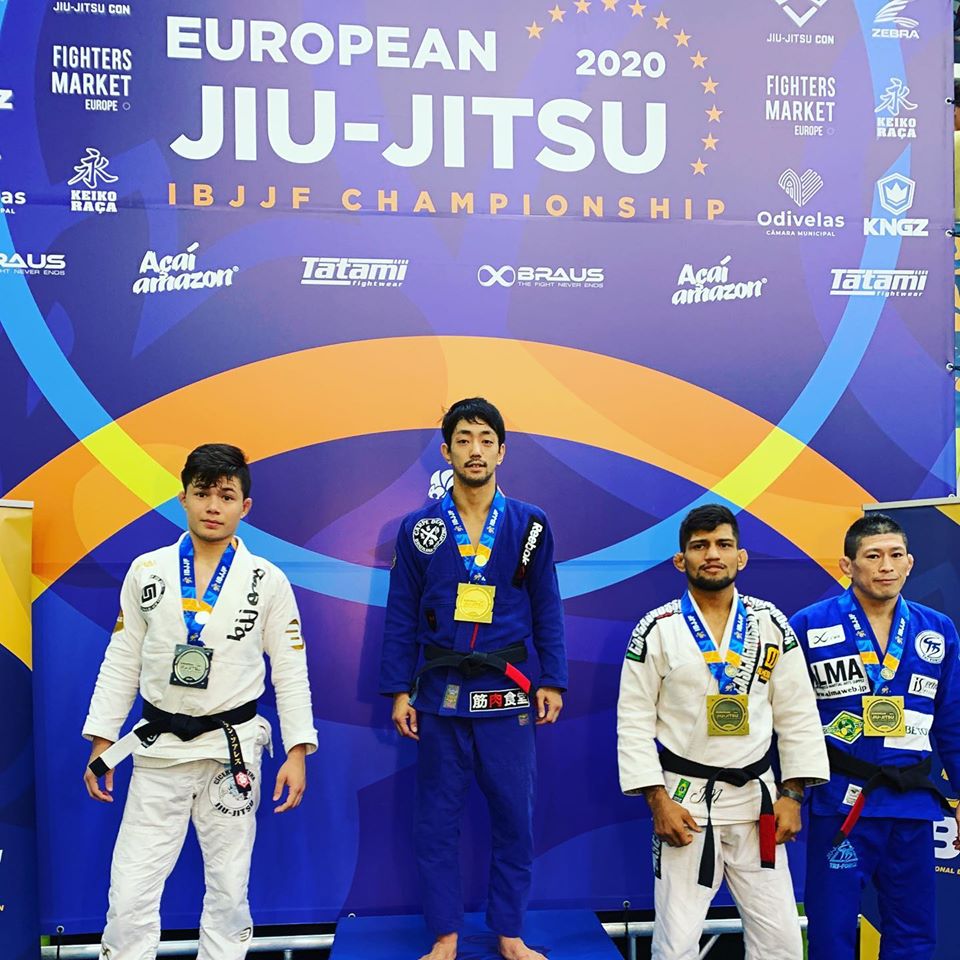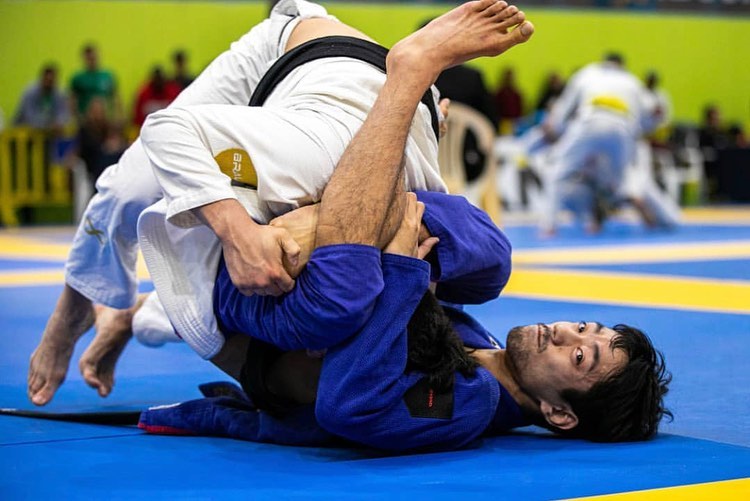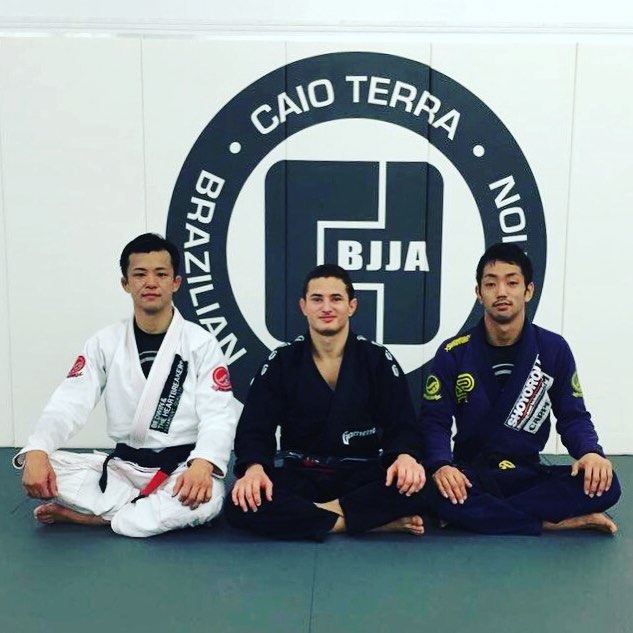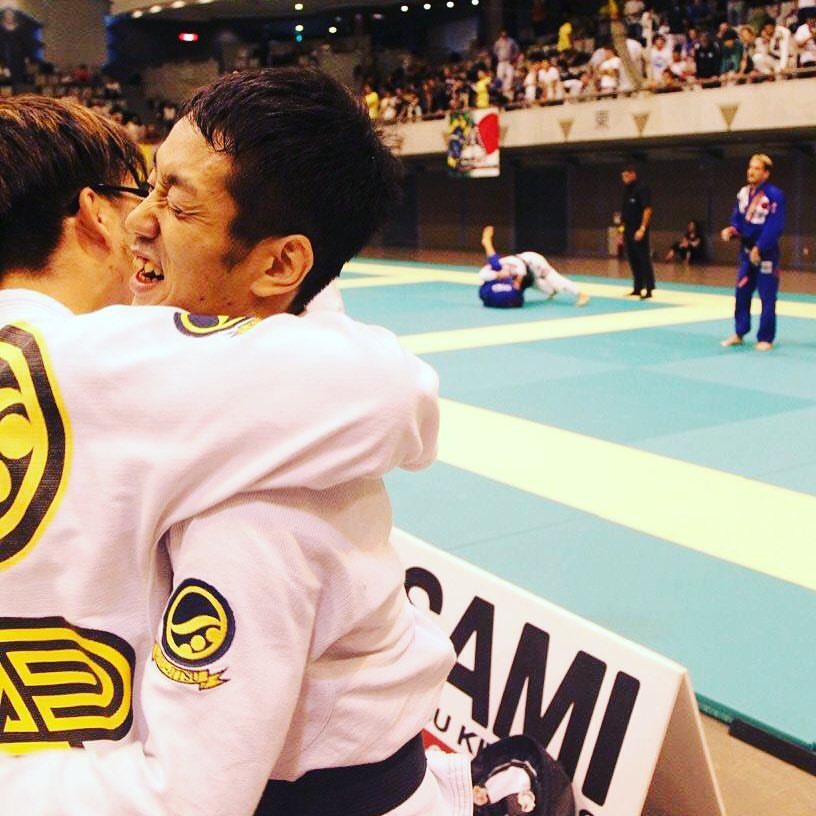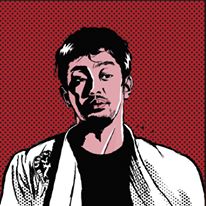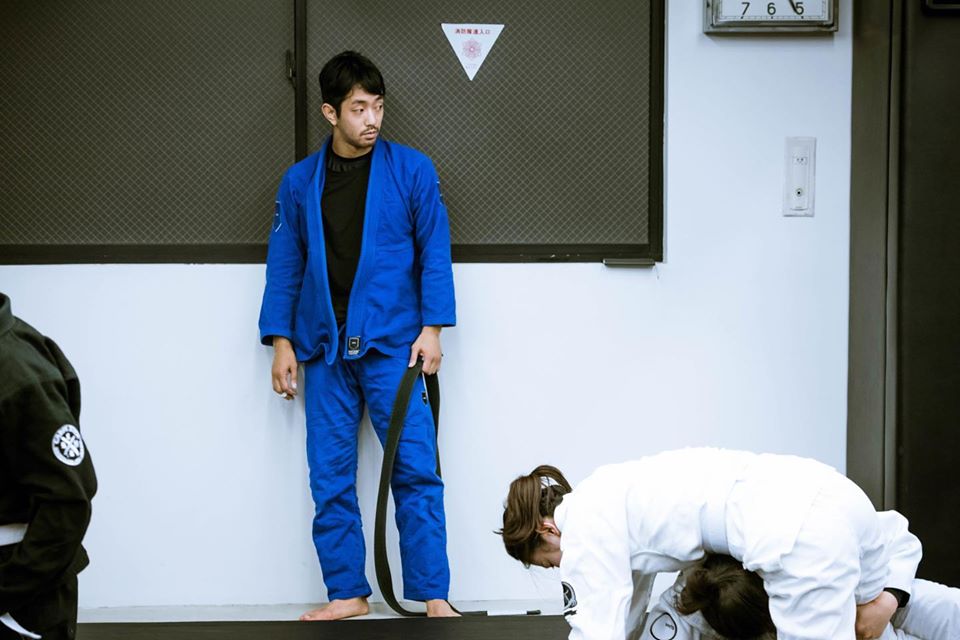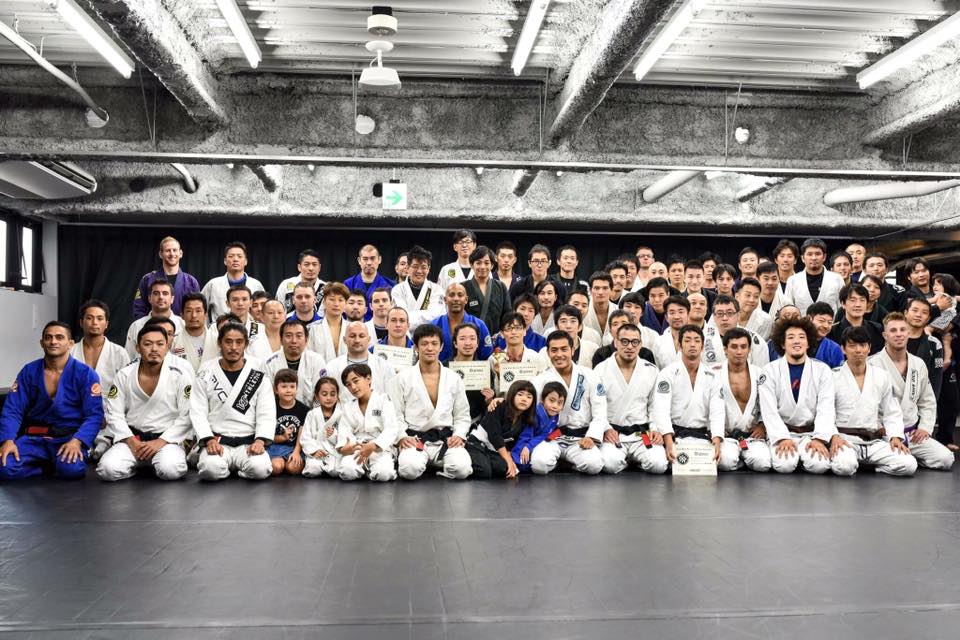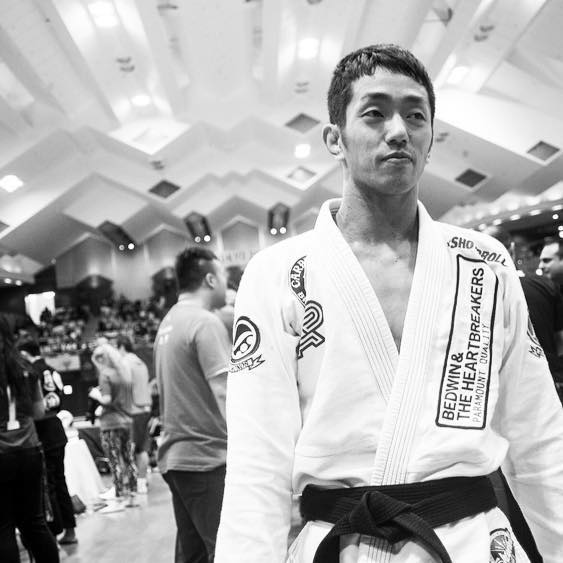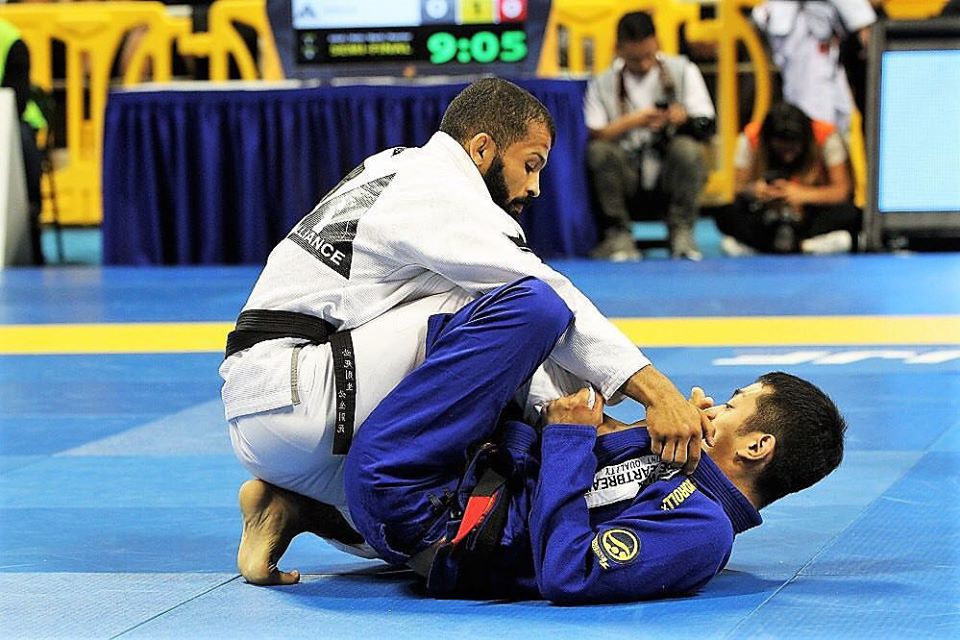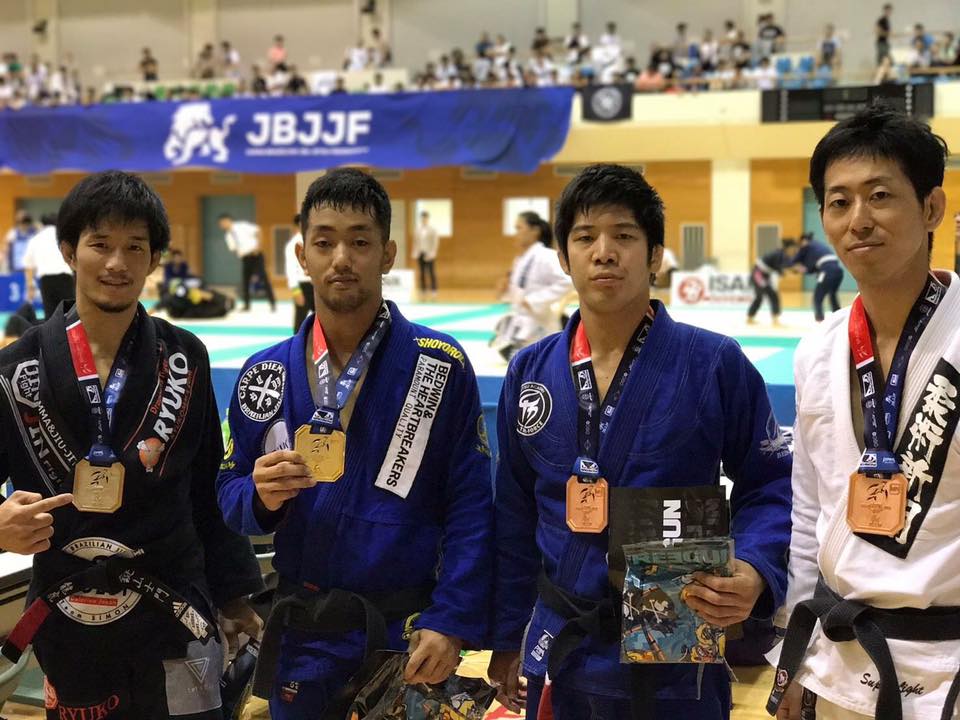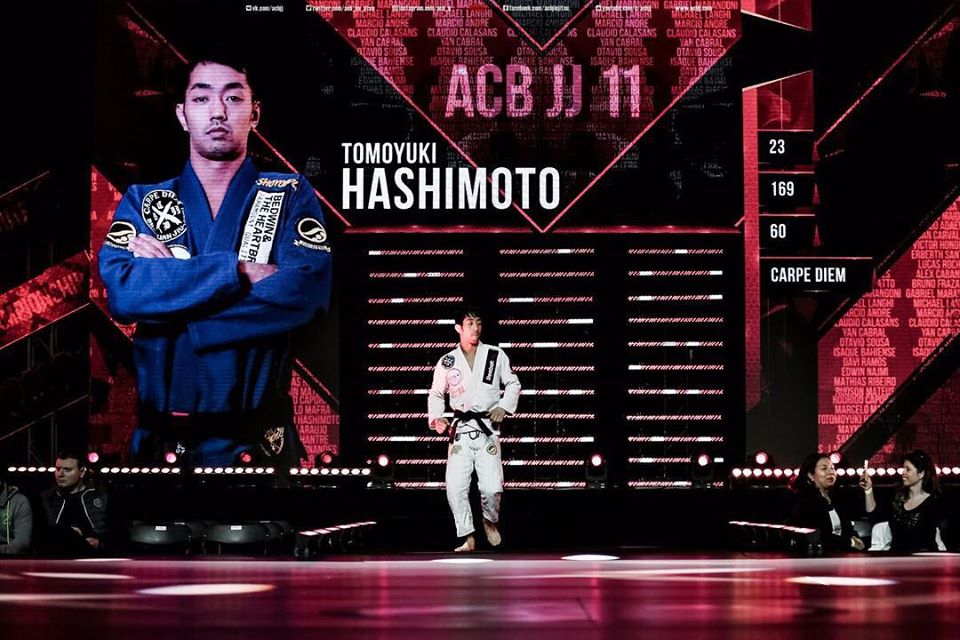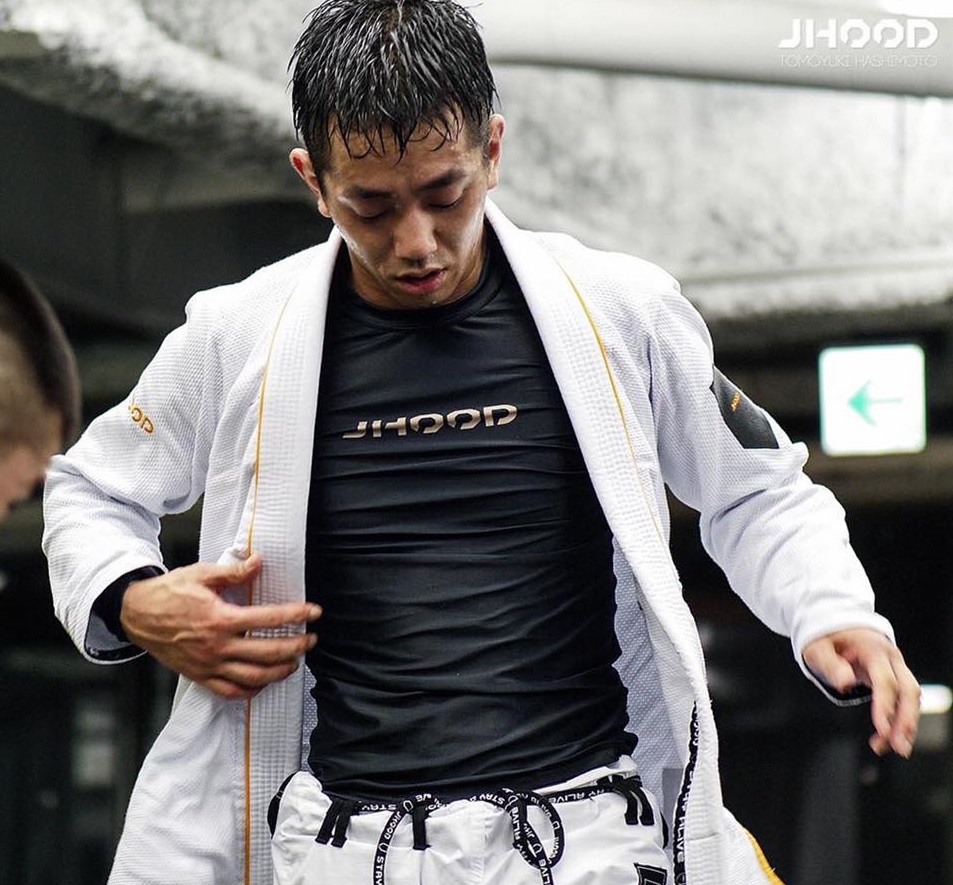Tomoyuki ‘Passport’ Hashimoto was born on the 20th of April, 1993 in Tokushima, Japan.
He would earn his black belt in 2015 promoted by the legendary Yuki Nakai after his gold medal run at the Mundials at Brown Belt that same year. Hashimoto would go on to win notable titles including the IBJJF Pan American title in 2018 and most recently the coveted IBJJF European title in 2020.
We had the privilege to sit down and catch up with Mr. Hashimoto during these chaotic times and congratulate him for a great start to his competitive year.
BJJASIA: The most important question first, why do you have the nickname passport?!
Passport: When I was supposed to travel for my first international competition I lost my passport. When Carpe Diems head Yuki Ishikawa found out that was the nickname bestowed upon me thereafter.
BJJASIA: Why did you start Brazilian Jiu Jitsu?
Passport: When I was in my first year of High School my mother showed me an advertisement for BJJ in the local magazine and it piqued my interest. So I decided to sign up for a trial class.
BJJASIA: What made you start?
Passport: I enjoy martial arts in general and when it was on TV I would watch it a lot. It developed to where we would buy instructional books and school friends and I would try techniques out on each other. I would say when I saw Bibiano Fernandes competing in MMA I thought, BJJ seems like an interesting art and this one of the points in my life where I really wanted to try it out.
BJJASIA: How did you come to work with Carpe Diem?
Passport: Carpe Diem was the only place in Japan I saw at that time that had Jiujiteros who were full-time instructors with no side jobs to fund their passion. At that time, I loved to teach and teach Jiu-Jitsu, so I pondered how fulfilled would I be to be able to teach Jiu-Jitsu full time. With this thought in mind, I contacted the Head of Carpe Diem Yuki Ishikawa and asked to work with them; this was the beginning of my ‘seize the day.’
BJJASIA: Congratulations on winning the 2020 Europeans. How did you feel after winning the coveted gold?
Passport: Beating Cleber Sousa whom I lost to previously, then besting Thalison Soares who came in with a lot hype in the finals was validating. I feel like my fellow Jiujitero’s would see this as an impressive win run to the podium. On a personal level, I feel like I am getting closer to a world class level with this title.
BJJASIA: Out of all of the competitions that you have entered which was the most important to you?
Passport: Brown Belt World’s in 2015
BJJASIA: Why was this particular tournament so important to you?
Passport: Until I won this tournament, I hadn’t had any competitive success that would be globally recognized, so I felt like I wouldn’t become a world-class competitor in the future. However, after winning this tournament, all by submission, I saw hope that I might be a great athlete like Caio Terra and Bruno Malficine in the future.
BJJASIA: How do you find the training environment abroad in comparison to that of Japan?
Passport: This is a difficult question to answer as there are many factors overseas, but it is quite clear that there are few outstanding athletes in Japan compared to that of the United States for example. Therefore, I think that the amount of useful information to win is considerably less than in the United States. (Depending on the location in America)
BJJASIA: You have been traveling a lot around Asia for seminars such as the Philippines and Korea. What was your impression training in these Asian countries?
Passport: The Philippines has many associations with top tier international academies and get top athletes often to visit for seminars. From this point of view, there are many academy owners and athletes there with a high level of enthusiasm for Jiu-Jitsu. I expect that it will continue to grow in the future there. Korea we could argue is similar to that of the Philippines. A country with a lot of prize tournaments such as the Spyder Invitational shows that Korea, as a country, places a high value on Jiu-Jitsu, I also felt that the average age of people doing Jiu Jitsu was quite young. I would argue that because of the military service, there are many strong young people with a warrior ethos that makes it easier to establish a martial arts culture better there than in Japan. On a personal level, I love both the Philippines and South Korea’s cuisine and I’ve discovered many foods that I like there.
BJJASIA: How are you training differ prior to competition?
Passport: Apart from cutting weight I don’t do anything particularly different prior to competition. We just do our best to have high quality training sessions.
BJJASIA: How do you feel prior to a match? What is your general mood?
Passport: Just before the match, I don’t think much. When the match starts, I just concentrate on what is in front of me, so I don’t think it makes sense to think too much before you step on the mats.
BJJASIA: Out of all the gyms you have visited which stands out the most for you?
Passport: It would have to be CTA, I visit Caio Terra’s academy every time I’m stateside. Personally, his instruction is second to none.
BJJASIA: What do you think about the current Japanese athletes or for that matter the current level of Jiu Jitsu in Japan?
Passport: There are some excellent young athletes that show promise; however that number is relatively small. I do not rate myself a good competitor, therefore when I was able to win the All Japan Championship 4 times in a row; I see the level of Japanese Jiu Jitsu as low. But by looking at the various gyms currently in Japan including Carpe Diem where I am based, I see amazing environments for competitive growth. If this trend can continue in Japan I hope the overall level of Jiu Jitsu in Japan can improve.
BJJASIA: Where do you think is the fastest growing country in Asia in terms of competitive Jiu Jitsu?
Passport: That’s a difficult questions to answer as I don’t really look at each Asian country with much focus, but I think there are many young competitors in South Korea. I think that there will be more competitors from Korea who will be more active on the global stage in the future.
BJJASIA: What do you think is necessary to make Jiu Jitsu more exciting in Japan?
Passport: I think one way to gain more traction and popularity would be to have more people exposed to the external media who are both attractive and appealing to the general public. However, this is quite difficult, so I think a good way would be to have people who are already celebrities get involved in Jiu-Jitsu and give it more PR.
BJJASIA: As an active competitor, what are your goals for the future?
Passport: To get better and win more matches.
BJJASIA: Lastly would you like to thank anyone or any sponsors?
Passport: I am grateful to everyone involved in my life.
Sponsors:
Carpe Diem Brazilian Jiu Jitsu
Social Media:
Products:
橋本知之インタビュー
BJJASIA: 初めに、何故「パスポート」の異名をお持ちですか?
橋本: 初めて海外に行って試合した時にパスポートを紛失しました。それを知ったcarpediem代表の石川さんがその異名をつけました。笑
BJJASIA: 柔術は何故始めましたか?
橋本: 僕が高校一年生の時に母親がタウン誌に記載されていたブラジリアン柔術の道場の紹介を僕に見せて勧めてきました。それで体験をしに行きました。
BJJASIA: 何が切っ掛けで柔術を始めましたか?
橋本: もともと格闘技を観戦するのが好きでテレビでよく見ていました。そして技の本を買って学校の友達を使って技の練習をしていました。そんな中テレビでビビアーノ・フェルナンデスがMMAで活躍しているのを観て、「ブラジリアン柔術面白そうだな」と思ったこともきっかけの一つです。
BJJASIA: カルペディエムはどういう巡り会わせで所属しましたか?
橋本: カルペディエムはその当時の僕が見る限り日本で唯一専業で柔術インストラクターをしている選手がいる場所でした。僕はその頃から柔術をするのも教えるのも好きだったので柔術の先生というのを仕事に出来ればどれだけ幸せだろうか、と思い代表の石川に「僕もcarpediemで働きたいです。」と連絡したのがはじまりです。
BJJASIA: 2020年黒帯ルースター級、ユーロピアン大会優勝おめでとうございます。大会優勝の感想は?
橋本: 前回負けたクレベル・ソウザ選手と勢いのある若手選手であるタリソン・ソアレス選手に勝っての優勝は多くの柔術家に評価してもらえる内容だと思うのでよかったです。そして自分の柔術がトップクラスに迫っていることを感じることが出来ました。
BJJASIA: 様々な大会の中で、一番印象的な試合又は、優勝は何でしたか?
橋本: 茶帯の時の世界大会優勝です。
BJJASIA: なぜこの大会が一番印象的でしたか?
橋本: この大会で優勝するまでは世界的に評価される結果を残していなかったのでこの先世界トップクラスの選手にはなれないような気がしていました。しかしこの大会をオール一本で優勝出来てこの先僕もカイオ・テハやブルーノ・マルファシーニのような凄い選手に僕もなれるかもしれないという希望が見えたからです。
BJJASIA: 日本と外国の練習環境はどう違いますか?
橋本: 海外といってもいろいろあるので解答に困りますが、例えばアメリカと比べると圧倒的に優秀な選手が少ないことは明らかです。よって勝つために有益な情報量がアメリカと比べるとかなり少ないと思います。(アメリカの場所にもよりますが)
BJJASIA: 去年は様々な国際セミナーをなされてましたが例えばフィリピン、韓国の柔術または国の印象はどうでした?
橋本: フィリピンは様々な大手アカデミーのアソシエーションがあり様々なトップ選手がセミナーでよく来日しています。そういう点から見ても柔術に対して熱量の高い経営者や選手が多くいてこの先さらに盛り上がっていくことだろうと予想します。韓国も同様でspiderなどの賞金トーナメントも盛んで柔術に対する価値が高い国だと思います。また柔術をしている人の平均年齢がかなり若いように感じました。兵役があるせいなのか筋力がしっかりついた若者が多く格闘技文化として定着しやすい土壌が日本よりも韓国の方が整っていそうだと感じました。フィリピンも韓国もアジアの国は全体的に僕好みの食べ物が多いので大好きです。
BJJASIA: 大会前の練習はどのように取り組んでいますか?
橋本: 大会前だからといって減量以外で特別何かをすることはありません。日々質の高い練習をして学習し続けるようにしています。
BJJASIA: 試合が始まる前には何を考えていますか、ムードは?
橋本: 試合直前はあまり何も考えていません。試合が始まれば目の前のことに集中するだけなので直前にあれこれ考えても意味がないと思っています。
BJJASIA: 海外で練習した道場の中でどこが一番印象に残りましたか?
橋本: やはり毎回訪れているCTAです。カイオ・テハの指導は個人的に極上なのでオススメです。
BJJASIA: 日本の現役選手又は現在の日本の柔術のレベルの様子を見てどう思いますか?
橋本: 若い選手で優秀で将来有望に見える選手はいますがその数が少ないと思います。僕は自分のことを凄く優秀な選手であるとは評価していません。よってそんな僕が全日本選手権で4連覇出来るということは日本全体のレベルはあまり高くないと思います。ですが所属するcarpediemを含め選手にとっての素晴らしい環境が増えているように見えるのでこのままその傾向が強まればこの先少しずつ全体のレベルが上がっていくのでは?と予想しています。
BJJASIA: 現在アジアの国を見てどこが一番伸びてると思いますか?注目の国はどこですか?
橋本: アジアそれぞれの国をしっかり見ているわけではないので答えづらいですが韓国は若い選手が多くこの先さらに世界的に活躍するような選手が出てくるのではと思っています。
BJJASIA: 個人的に考えて日本で柔術をもっと盛り上げるには何が必要だと思いますか?
橋本: 人として魅力的で人気者になれるような選手が現れてメディアへの露出が増えればもう少し盛り上がるかもしれません。しかしそれはなかなか難易度高いので既に有名人である人が柔術にはまりピーアールしてくれるのも良い手段かと思います。
BJJASIA: 選手として、将来的には何を目標としていますか?
橋本: 選手としてはもっともっと上手くなって試合で勝つことが目標です。
BJJASIA: 最後に感謝したい方、スポンサーは?
橋本: 僕に関わっている全ての人に感謝しています。
Sponsors:
Carpe Diem Brazilian Jiu Jitsu
Social Media:
Products:
Author of this article

Mac
Mac is a former Businessman in the Japanese Construction Industry.
Hearing is calling, he left his former life behind him to bring Functional Fitness to Myanmar.
Now a Manager, he coaches both Trainers and Clients alike.
In his spare time he is the Head Instructor for BJJ Myanmar.

